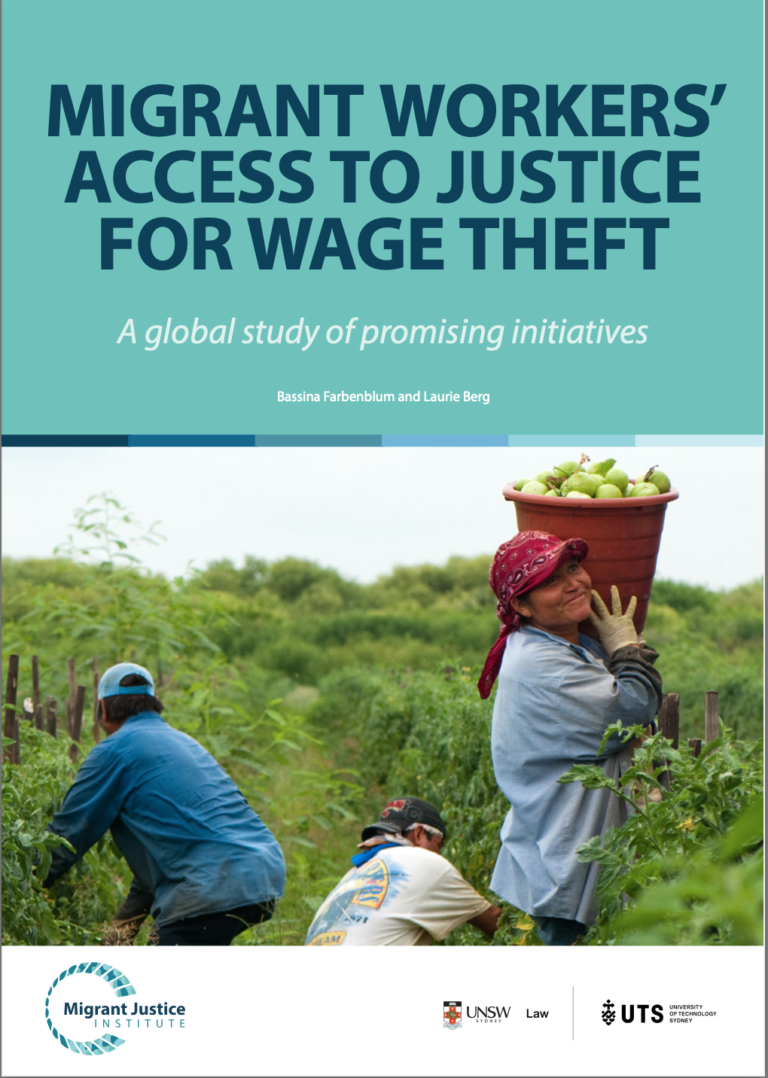Systemic wage theft has long been part of the labour migration landscape in every region of the world. During COVID-19, egregious underpayment of migrant workers was even more widespread as businesses encountered financial pressures and vast numbers of workers were repatriated without payment of their wages. Though every jurisdiction has judicial and/or administrative mechanisms to address wage claims, employers in every country can be confident that very few unpaid migrant workers will ever use those mechanisms to recover their wages. This is because the system is stacked against them at every stage in the wage claim process.
The failure of government and judicial wage recovery mechanisms is not inevitable. This report documents a range of initiatives from around the world that seek to disrupt employer expectations of impunity and enable migrant workers to bring claims and obtain redress for wage theft. These specific, practical reform targets can form the basis of collaborative and evidence-based wage theft campaigns on a global, national and local scale.

